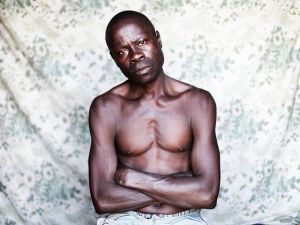Furore over IFAD support for Uganda land grab

ROME – The environmental watchdog group Friends of the Earth has called for the International Fund for International Development (IFAD) to be abolished because of the UN agency’s financing of a land grab at Bugula on Lake Victoria in Uganda to establish a palm oil plantation “in clear violation of its financing principles and criteria.”
“UN-IFAD must hang its head in shame,” said Anne van Schaik, who campaigns for accountable finance at Friends of the Earth Europe, and works with Friends of the Earth groups in Europe, South East Asia and Africa against landgrabbing for palm oil plantations.
“Clearly IFAD is an organization crying out for abolition,” she said, writing in the Ecologist magazine. “Its financing of the Bugula island land grab is in clear violation of its financing principles and criteria, indeed the very purpose of its existence – ‘Enabling poor rural people to overcome poverty.’”
She added: “while IFAD speaks of ‘community-driven development approach to fighting rural poverty,’ ‘improving access to land and tenure security,’ ‘dynamic and inclusive rural development,’ ‘food and nutrition security for all,’ ‘inclusive growth and poverty eradication,’ and ‘sustainable smallholder agriculture,’ it is actually financing land-grabbing projects that achieve the precise reverse of all its empty rhetoric.”
“Indeed it is robbing poor farmers and farming communities of their land and livelihoods, leaving them destitute, and handing over their wealth for plunder by foreign corporations and profiteering financiers.”
Five years ago, an oil palm plantation partly operated by the oil palm giant Wilmar International began on Bugula, a highly biodiverse island on Lake Victoria. Then home to about 100 small-scale farmers, the project was sold to them with extravagant promises of employment and development.
As much as 3,600 hectares of pristine forest has been destroyed, replaced with a vast swathe of oil palm, and many farmers and their families find themselves destitute with little compensation - if any - awarded to them for the loss of their land.
Finding themselves in increasingly desperate circumstances, three of them have launched their legal action on behalf of the rest of the community against the oil palm company, Oil Palm Uganda Limited (OPUL), demanding the restitution of their land and compensation for lost crops and income.
Although nominally independent, OPUL is 90 percent owned by Bidco Uganda, itself a joint venture between the oil palm giant Wilmar International, Josovina Commodities and Bidco Oil Refineries, a Kenya-based company. Wilmar International holds at least 39 percent of the shares in OPUL and is providing technical expertise for the project.
The oil palm project is backed by the Ugandan government, which even helped to finance it, and by IFAD, which is "directly overseeing" the project after providing a dlrs 52 million loan.
The Bugula project is carried out under IFAD's 'Vegetable Oil Development Project - Phase 2' which claims to be aimed at "increasing the domestic production of vegetable oil and its byproducts, thus raising rural incomes for smallholder producers and ensuring the supply of affordable vegetable oil products to Ugandan consumers."
According to IFAD, "Oil palm activities are carried out on Bugula Island in Kalangala District (Ssesse islands) and Buvuma Island in Mukono District. In the course of the project, about 3,000 smallholder farmers will directly benefit from oil palm development and 136,000 households from oilseed development. The project is directly supervised by IFAD."
The IFAD project page records a total project cost of $146.2 million, to which it is contributing the dlrs 52 million loan repayable in 2018. The project is claimed to benefit 139,000 households. Britain is the single biggest contributor to IFAD.


